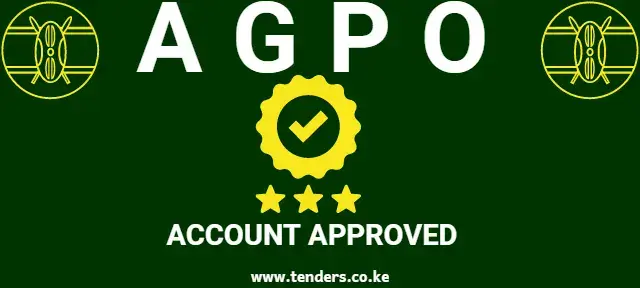Public sector bidding is very lucrative. If you identify an industry sector you are well familiar with, it is easy to grow your business through tenders.
So how can you get your foot at the door? You may ask. I will discuss how the public sector works and how you can start supplying for the government.
Important terms to know:
Public sector– All organizations run by the Government of Kenya. They include Ministries, Semi-Autonomous Government Agencies (SAGAs), County governments, State corporations, public hospitals, Schools and Universities, etc.
Public Procurement- the purchase of works, goods, and services by the public sector.
Procuring entity-the organization buying the goods, works, and services.
Public contracts– binding agreements between the procuring entity and the supplier. Contracts awarded to businesses by the procuring entity in the public sector.
Access to Government Procurement Opportunities (AGPO)- A government-run program to support the Youth, women, and persons living with Disabilities (PWD) in participation in public bids.
PPARB-Public Procurement Administrative Review Board
PPRA-Public Procurement Regulatory Authority
Myths about public sector tendering
There is a common misconception that only large companies have a chance to win public contracts. However, this is not the case anymore.
The Public Procurement and Disposal Act reserves regulation that every procuring entity must allocate 30% of procurement spends to the specialized groups, i.e., women, Youth, and PWD.
AGPO allows these groups to participate in public procurement by giving them access to tremendous opportunities to work with the government.
Things you need to know when bidding public contracts.
1. Principles of procurement
Procurement follows the principles of 5R’s. Procuring entities acquire works, goods, and services in the most cost-effective way to ensure they are provided in the right quantities, at the right quality, from the right source, in the right place, at the right time, and at the right price
2. Your rights in the tendering process
Every business has the right to bid with the government. The Government of Kenya buys from:
Citizen contractors (if its owners are Kenyan citizens)
Enterprises owned by women, youth, and PWDs.
Local contractors (if registered in Kenya),
Small and Medium Enterprises (SMEs),
Joint ventures or sub-contracting arrangements (foreign contractor enters written contract with a local contractor who has a majority share).
If you feel that the tendering process was unfair in any way and have valid proof, you can challenge the award decision within 14 days after notification of award/regret.
You should present the complaint in writing to the PPARB requesting a decision review by the procuring entity.
Valid grounds for review
A supplier was unfairly disqualified at the pre-qualification stage.
A bidder received valuable information that was not shared with other tenderers.
There is proof of bias in favor of one bidder.
Proof of acceptance of late tender documents
Lack of transparency in the tender evaluation process
Lack of communication of tender results during the tender opening meeting.
Changing the award criteria or the scoring weightings after receiving bids
Note
If you choose to challenge the procuring entity, you should submit 15 bound copies and soft copies to the Board secretary, and the pages should be numbered. Additionally, you will pay a fee depending on the value of the tender and an administrative fee of KES 2,000.
The PPARB reviews procurement appeals and settles tendering and asset disposal disputes.
If you are at risk of loss due to the failure of the procuring entity to follow procurement laws, you should report the matter to PPARB.
If there is a lack of transparency with the procurement professionals, you should report the matter to the Kenya Institute of Supplies Management (KISM).
KISM handles disciplinary issues of professionals in procurement and supply chain management.
3. Competitive pricing
The PPRA has a section for Market Price Index. The section provides information about the market prices that can help with costing your bid.
Furthermore, PPRA offers information on previous contract awards that you can compare pricing.
4. Procurement cycle
The procurement entity identifies the need requirement of goods, works, or services.
The procurement department prepares the standard tender documents.
Suppliers prepare their tender response.
A bid opening meeting is held at the procuring entity- free for suppliers to attend.
Several stages of evaluation are conducted (preliminary evaluation, technical evaluation, financial evaluation).
Award of contract.
Technical evaluation
5. Trade financing
In the tender document, you are asked to give a credit period by the buyer. With the credit period, the procuring entity will take the number of days stated to pay your invoice.
When you win a tender, you should get the best financing that will help service your tenders. However, some banks may not be willing to offer a loan when you are a startup.
Therefore, there are other ways you can get financing.
There are some banks and financial institutions that can offer trade finance. As a supplier, you shop around and find a good one to build a relationship with.
The awarding entity will offer you a Local Purchase Order (LPO) legally binding with the buyer. You can take the LPO to a financial institution as a guarantee to receive a loan to service the contract.
You can apply for a Letter of Credit (LC).
6. Tender security
Many procuring entities will require bidders to submit tender security (bid bond). Tender security is a guarantee issued by a financial institution, Sacco, or Bank, to ensure that the bidder does not withdraw from the process midway.
However, specialized groups (women, youth, and PWDs) are not required to submit the bid bond. Otherwise, they must fill in a tender securing declaration form found in the standard tender document.
Conclusion
Tendering for the public sector is easy once you are aware and complacent with the process. However, once you set your foot in, you should be patient because it might take more than one bid for you to be successful. Therefore, patience is key.






